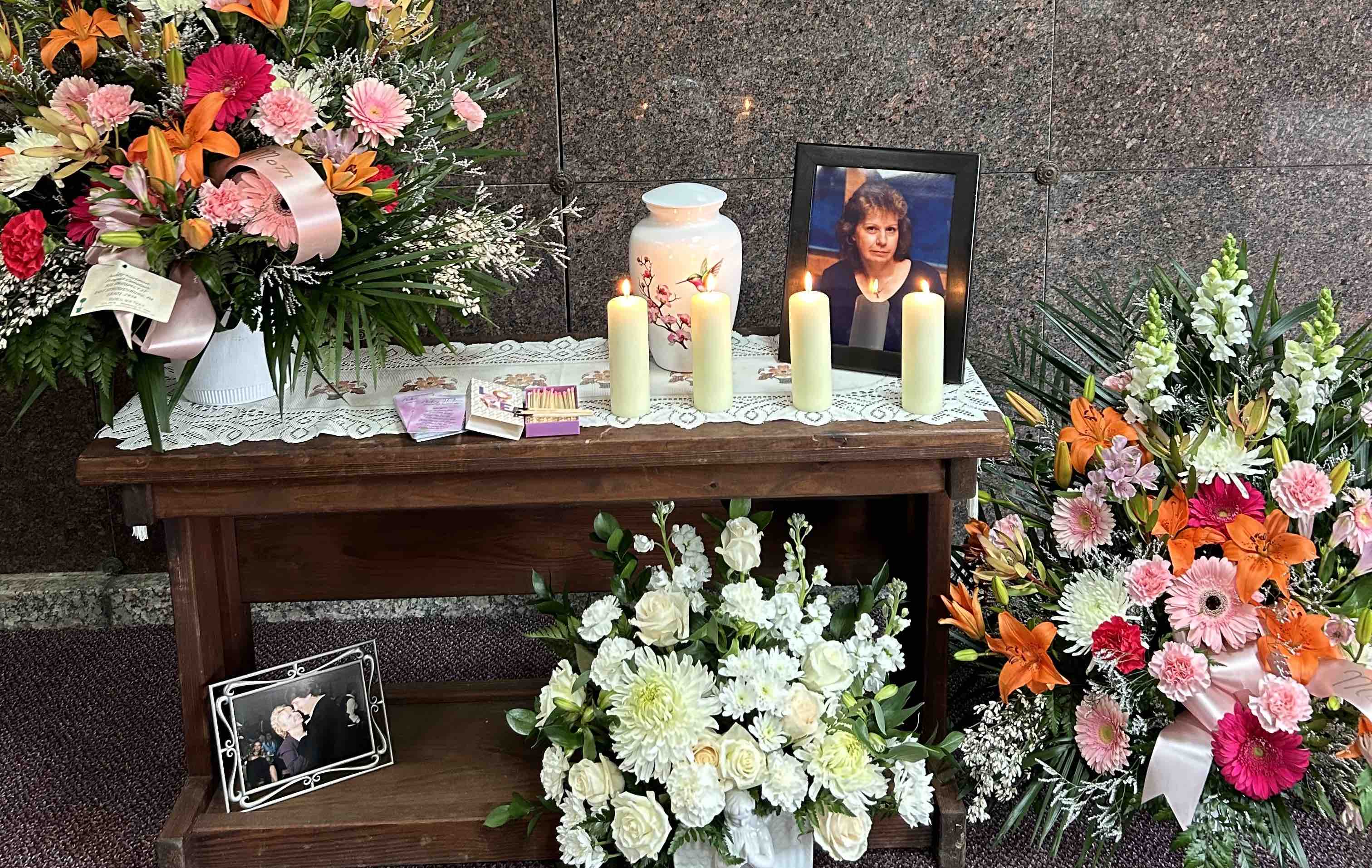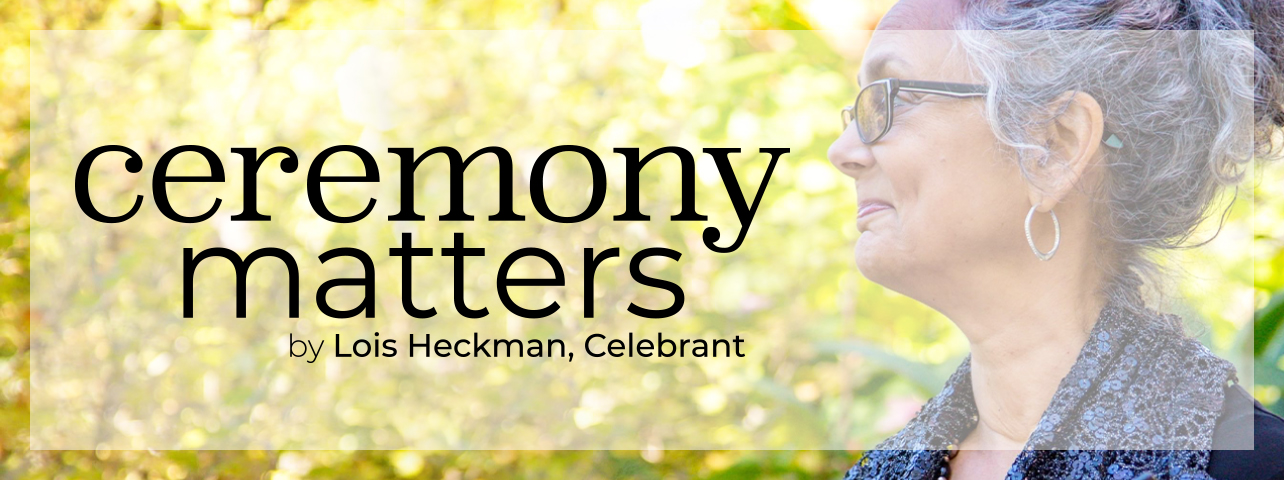In a crisis it difficult to go your own way. People fall back to what they are familiar with which is often church. Choosing a celebrant for a funeral service is still rare. I want people to understand that there are different ways to come together in times of grief and pain, and that it is very important to do so. Perhaps the biggest value to any service is a sense of community and the loving support given by others.
As a Celebrant I not only officiate weddings, which are such joyous occasions, but I am called upon to officiate funerals. For simplicity I’ll use ‘funeral’ to include memorials and celebration of life services. I also perform baby welcoming’s or naming ceremonies, and other life milestones, by the way. But today I’m addressing the difficult funerals for younger people and even more so, specifically for suicide or accidental deaths.
My initial motivation in becoming a celebrant actually was funerals. When attending a funeral where the minister clearly knew nothing about the deceased, I was so upset and I knew there had to be a better way, especially for non-religious people. So off I went to study and become a celebrant.
Let me share some of my experiences in creating and performing non-religious funerals.
Most important for the most extreme and painful situations is to acknowledge the elephant in the room. I believe honesty is important and everyone is thinking about the cause of death anyway, so let’s get that out there. So after a welcome and introducing myself I dive in. I want to speak to how survivors are feeling. I know they feel guilty and helpless as well as angry or confused.
Speaking to our grief I have found these words from Ashley Davis Bush helpful:
“Grieving is not a short-term process; it's not even a long-term process; it's a lifelong process. 'Having a future' now means that although your life will flow again, it will flow differently as a result of the loss. Your grief will become incorporated into your life history, become a part of your identity. And you will continue now, and forever, to redefine your relationship with your deceased loved one. Death doesn't end the relationship, it simply forges a new type of relationship - one based not on physical presence but on memory, spirit, and love.”
I might delve deeper into the tragedy of the death before moving on to remind us that we need not define the person by their death but celebrate their life. This transition sets up the rest of the service to remember the deceased fully, who they were, who they loved and who loved them, and their accomplishments, hopes and dreams. No one should be defined by their death.
Because I know the power of ritual – and so many things in any funeral are very ritualistic – I can incorporate additional, special actions – but only if they speak to the deceased interests or identity. I have used small stones – asking people to hold them through the service and at the end we might place them somewhere meaningful. Stones can be tossed into a body of the water to go their way, making waves that intersect just as our loved one touched so many in ways we may never fully know. Or stones can be placed in a container for keeping.
Candles can be very helpful when they represent the grief, love, courage, memories and other important feelings. The meaning of each candle is spoken then lit by a special loved one.
One time we broke a ceramic bowl to free the soul in a nod to a Southwest Native American tradition. Other rituals could include flowers, water, wine, or other symbolic tangible items. Responsive readings can be powerful. For my own father’s funeral we passed out little shots of gin and ‘goldfish’ crackers – his daily tradition, and toasted him to the tunes of Frank Sinatra singing “Fly Me To The Moon.” This was so many years ago but still unforgettable.
A funeral can be as interesting and diverse as the deceased and their loved ones. I’m thinking of a ceremony a Columcille – a local megalith parks with standing stones. We broke up the ceremony into sections, walking to different areas within the park. Walking quietly in itself is a powerful thing. Upon arriving at each ‘station’ we had different readings and actions. This and many other unique services I’ve provided have confirmed my choice to become a celebrant was the right one.

